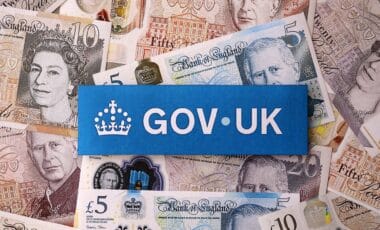As the cold weather begins to ease and the promise of spring draws near, March 2025 will see crucial financial support for millions of UK households. From Universal Credit to State Pensions and various disability benefits, March will bring essential updates to how individuals access their financial assistance. At a time when living costs remain high, these payments provide a much-needed boost to those navigating the ongoing cost of living crisis.
However, the economic landscape remains challenging, with rising energy costs and inflation above target. In this article, we break down the key dates for benefit payments, the upcoming changes to support, and what households can expect as the UK gears up for another financially taxing year.
What to Expect in March 2025: Benefit Payments and Key Dates
March 2025 is set to be an important month for recipients of benefits and state pensions in the UK. The Department for Work and Pensions (DWP) has confirmed that all benefit payments will continue as scheduled, without any disruption due to bank holidays. Here’s a closer look at what to expect:
Universal Credit and Other Payments
For those receiving Universal Credit, State Pension, Pension Credit, and several other benefits, March will see payments processed on time. Notably, these include Child Benefit, Disability Living Allowance (DLA), Personal Independence Payment (PIP), Attendance Allowance, Carer’s Allowance, Employment Support Allowance (ESA), Income Support, and Jobseeker’s Allowance (JSA). These payments will be available to those who qualify and will be paid into bank accounts in the usual manner.
Additionally, those on Universal Credit should prepare for the upcoming migration from legacy benefits, with all legacy systems set to move to Universal Credit by January 2026. Those on tax credits, housing benefit, income support, or jobseeker’s allowance should have already received notification regarding this transition. The deadline for those receiving Employment Support Allowance (ESA) or housing benefit is December 2025.
State Pension Payments and Adjustments
The State Pension will see an increase in April 2025, with the standard pension rising by 4.1%, in line with the triple lock system, which guarantees that pensions rise in line with the highest of inflation, earnings growth, or 2.5%. This means that pensioners can expect to receive an additional £472 per year.
In March, State Pension payments will be distributed according to the last two digits of an individual’s National Insurance number. For example, those with National Insurance numbers ending in 00 to 19 will receive their payments on Monday, while those with numbers ending in 80 to 99 will receive theirs on Friday.
Household Support and Additional Assistance
As the cost of living continues to strain many households, the Household Support Fund (HSF) remains a critical resource. This fund is administered by local councils, who can allocate it to vulnerable households through a variety of methods, including cash grants, supermarket vouchers, or assistance with energy bills. With the cost of living rising, including an expected increase in energy bills and council tax, many families are looking to these support schemes for financial relief.
The HSF is set to continue until March 2025, thanks to an extension by Labour, which announced that the Conservative-created scheme would be extended by six months beyond its original September 2024 deadline.
Key Dates for March 2025: Benefits and Support
To help individuals and families manage their budgets, the government has set out the following key payment dates for March 2025:
- Universal Credit: Paid monthly or twice monthly depending on your payment schedule.
- State Pension: Paid every four weeks, based on your National Insurance number.
- Disability Living Allowance (DLA) and PIP: Available on the same day as other benefits, paid directly into bank accounts.
- Jobseeker’s Allowance (JSA): Distributed weekly or bi-weekly depending on your arrangement with the DWP.
- Child Benefit: Paid monthly for those eligible.
As with all government benefits, it’s important to check your exact payment dates and make sure your details are up to date to avoid any delays.
Key Support Options Beyond March: Loans, Grants, and More
In addition to the standard benefits, emergency financial support remains available for those who need it most:
- Budgeting Advance Loans: Those on Universal Credit can apply for interest-free loans in case of emergencies, with repayments automatically deducted from future payments. Individuals can borrow up to £348 if single, £464 if part of a couple, or £812 if they have children.
- Charitable Grants: For people facing unexpected hardship, there are numerous grants available to help with costs such as food, fuel, or utilities. These grants are often specific to individuals in particular circumstances, including those who are ill, disabled, or unemployed.
- Energy Support: Several energy suppliers, such as British Gas, Scottish Power, and E.ON, offer grants of up to £2,000 for eligible customers facing financial difficulty.
- Council Tax Reduction: Those on benefits may be eligible for a council tax discount of up to 100%, depending on their situation. In cases of severe hardship, councils may provide discretionary reductions.
- Free Childcare for Working Parents: From April 2025, all children under five years old will be eligible for 30 hours of free childcare, an expansion that aims to support working families with younger children.









